College of Science, Engineering & Technology
Membrane and filtration technology for African prosperity
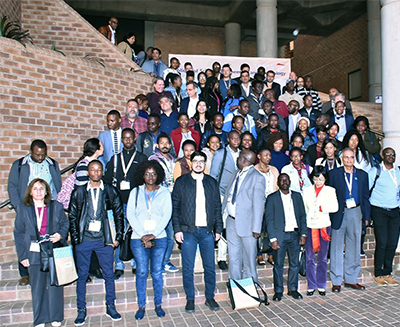
AMSIC-2 delegates at the Unisa Science Campus
The four-day second African Membrane Society International Congress (AMSIC-2), with the theme of inventing a better future filled with knowledge sharing, economic growth, and prosperity in Africa using membrane and filtration technology, took place at the Unisa Science Campus from 29 July to 1 August 2018.
In her welcoming address, Prof Thenjiwe Meyiwa, Vice-Principal of Research, Postgraduate Studies, Innovation, and Commercialisation, warmly welcomed the delegates to South Africa and to Unisa, and emphasised that the university saw this as an opportunity to further strengthen the relationships that had already been created. She added that the institution was looking forward to the excellent research that would come out of the congress.
Dr Abdoulaye Doucouré, President of AMSIC, thanked Unisa for hosting the second congress, especially during such an inspiring time as the centennial of Nelson Mandela. The first international congress (AMSIC-1) took place two years ago in Tunisia. He further stated his appreciation of the crucial contribution of the AMSIC-2 Organising Executive Committee, under AMSIC-2 Chair Professor Edward Nxumalo, for its sustained engagement and commitment to organise such a high quality congress. “We are indebted to our members and everyone who devoted time for organising such a productive and wonderful conference,” he concluded.
AMSIC was formally established in August 2014 and its headquarters are located at the E’cole nationale d’Ingenieurs Abderrahmane Baba Toure’, in Bamako, Mali. It counts nearly 100 members, with 80 percent residing in Africa and 20 percent living in North America, Europe, and Asia. It is an international, pan African, and culturally diverse organisation that is actively engaged in studying and implementing filtration processes in strategic sectors such as water, health, energy, and the environment. AMSIC’s vision is to train and educate a critical mass of experts on the African continent who can engage stakeholders from academia, industry, and government to build technological and economic growth derived from membrane and filtration sciences.
Prof Bhekie Mamba, Executive Dean of Unisa’s College of Science, Engineering and Technology (CSET), acknowledged the sponsors: Unisa’s Nanotechnology and Water Sustainability (NanoWS) Research Unit, College Research Committee, Anton Paar, Institut Europeen des Membranes (IEM), Anatech, Ion Exchange Safic, Air Products South Africa, Yantair, Anton Paar, Mercedes Benz, and the Euromembrane Society for the excitement they showed in supporting the congress.
“The hosting of the AMSIC-2 conference highlights the level of recognition of our research endeavours in the fields of membrane science and technology. We are world-recognised as attested to by the attendance of world-class researchers who came to the congress to present plenary, keynote, and invited lectures. Needless to say, with the infrastructure that exists at the Science Campus, the congress presented an opportunity for identifying areas of research collaboration especially after taking the conference delegates to view what was in store in our laboratories. It is my wish as the Executive Dean of CSET that other research groups’ focus area leaders would seize the opportunities to host high-profile conferences so that they may also announce their presence in the international arena of research,” he affirmed.
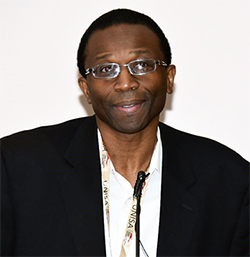
Dr Abdoulaye Doucouré (AMSIC President) |
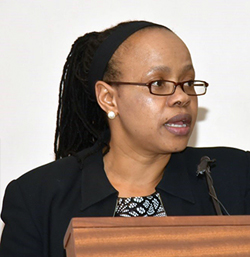
Prof Thenjiwe Meyiwa (VP: Research, Postgraduate Studies, Innovation, and Commercialisation, Unisa) |
According to Nxumalo, the aims of the conference were achieved, judging both from the numbers in attendance as well as the diversity of the audience and the discussions that ensued thereafter. The congress, which was attended by researchers from at least 16 countries worldwide, was aimed at capturing key technological advances in fields heavily dependent on membrane filtration systems such as water, air quality, biomedical sciences, microelectronics, biopharmaceuticals, chemical manufacturing, energy and mining, oil, gas and power generation. This congress also provided a platform for Unisa’s researchers as well as the CSET master’s and doctoral students with an opportunity to get feedback about their research work from international academics, scientists and other stakeholders.
The meeting further addressed important technical, scientific and socio-economic issues around membrane science and technology. It provided broader discussions to issues related to membrane material development. One of the plenary speakers, Professor Glenn Lipscomb of the Department of Chemical Engineering, University of Toledo, USA, provided a talk on Spacers for spiral wound modules where he outlined simulations using computational fluid dynamics and experimental measurement of macroscopic performance as well as velocity field variations in the flow channel. He evaluated design parameters for conventional ladder and diamond spacers as well as novel designs of spacers for spiral wounds modules.
Other well-known scholars and experts in the fields of membrane science and technology who made representations included Professor Rong Wang of the School of Civil and Environmental Engineering, Nanyang Technological University (NTU), Singapore; Professor Jas Pal Badyal, a Fellow of the Royal Society, Durham University, UK; Professor Jianxin Li from the State Key Laboratory of Separation Membranes and Membrane Processes in Tianjin Polytechnic University, China; and Mihail Barboiu, a research leader at the Institut Européen des Membranes, Université de Montpellier, France.
Various postgraduate students received awards for the best presentations. The overall winners were:
Best Poster Presentation Prize
1st Khona Maziya, University of Johannesburg
2nd Myra Sarre Nzaba, Unisa
3rd Francois Matthee, University of the Western Cape
Best Oral Presentation Prize
1st Nozipho Gumbi, Unisa
2nd Kate Kotlhao, University of Johannesburg
3rd Christopher Chukwuati, University of Johannesburg
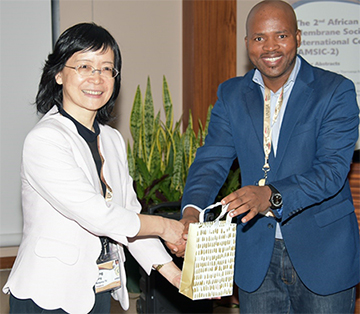
Prof Rong Wang (School of Civil and Environmental Engineering, NTU, Singapore) with Prof Edward Nxumalo (Chair: AMSIC-2 and associate professor in NanoWS)
One of the visibly excited delegates, Wang, mentioned that she was very excited to be in Africa, especially in South Africa, as it was her first time on the continent. She appreciated the kind invitation and hospitality of the key organisers, Mamba and Nxumalo.
AMSIC-2 delegates were treated to a gala dinner at Moyo Restaurant at the Zoo Lake in Johannesburg with the best performance by the Unisa Jazz Band. This was to expose delegates to the exciting life, food, and entertainment of Africa as it was the first time for some of them on the continent.
Delegates were also afforded a chance to tour Unisa’s state-of-the-art facility and laboratory infrastructure on the final day of the congress. They were also taken on a sightseeing adventure in Johannesburg and neighbouring areas to visit places such as Soweto, Vilakazi Street, the Apartheid Museum, Maropeng, the Sterkfontein Caves, and many other places.
The congress concluded by running two post-conference workshops concurrently: A workshop on membrane for water, energy, the environment, and a workshop on air-filtration and air-quality, where many students from Africa participated.
The organisers wish to thank Unisa’s Professor Mandla Makhanya, Principal and Vice-Chancellor, for convincing the college executive management to host the congress at the Science Campus. Such a gathering has really exposed the Science Campus to the world’s best scholars and experts in the fields of membrane science and technology.
*By Thembeka Ntuli-Mpapama
Publish date: 2018-08-17 00:00:00.0


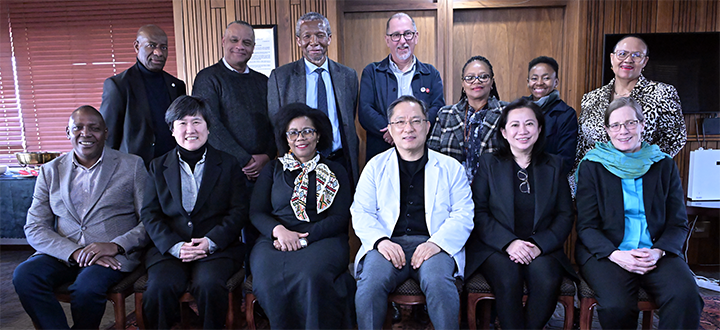 Unisa wins bid to host IAMS General Assembly
Unisa wins bid to host IAMS General Assembly
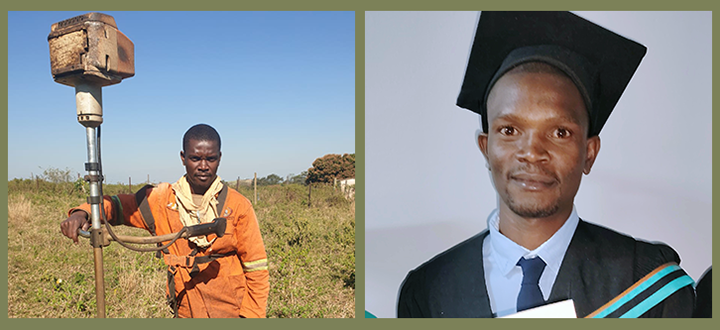 Cutting grass by day, pursuing Unisa studies by night
Cutting grass by day, pursuing Unisa studies by night
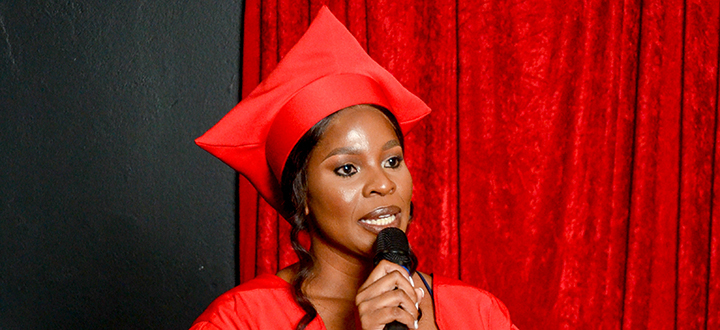 Unisan’s research set to improve accident records management through AI
Unisan’s research set to improve accident records management through AI
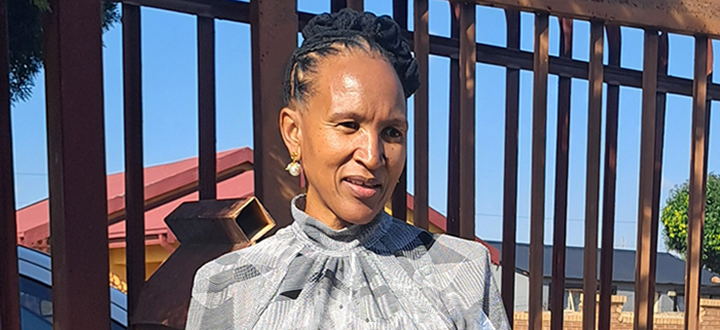 Koma e wetse: When tradition meets the harsh realities of modern livelihoods
Koma e wetse: When tradition meets the harsh realities of modern livelihoods
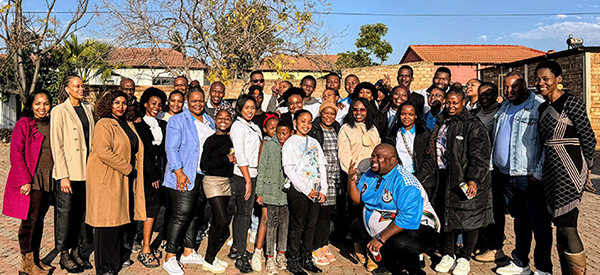 Imbizo inspires youth
Imbizo inspires youth